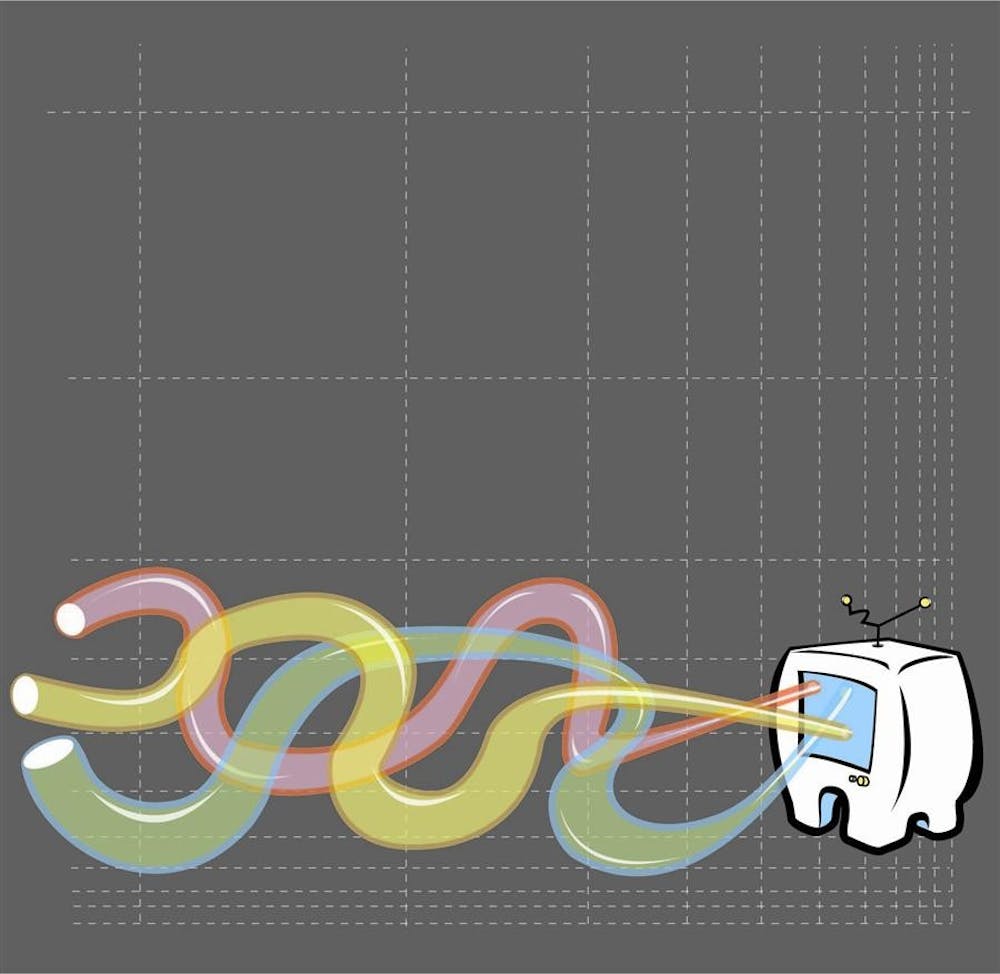Every new season should bring new story lines, but over the past few years, we keep hearing about the same issues from the television industry – declining ratings, hemorrhaging audiences and the lack of break-out content.
But nearly two years removed from the start of the Writer’s Guild of America strike that disenfranchised audiences and crippled programming development for the 2008-09 season, this year’s slate of newbies marks a noticeable improvement over last year.
And though ratings will continue to drop due to the excess of streaming applications and outlets available, the industry is coming around to alternative measuring metrics, meaning networks will be more reluctant to cancel shows.
Thus, many of the main points in the television industry’s story remain, but there are indications of change. These five issues might re-write how the industry’s story plays out for years to come.
• “The Jay Leno Show” and programming for the margins.
The network powers-that-be have always been concerned with the bottom line, but in this economy cost-effective programming will take precedent over everything else, meaning more programming for the margins. Always ready to try anything innovative if it involves making money, NBC is out front with this initiative by renting out 10 p.m. to Jay Leno instead of paying for high-cost dramatic programming.
No one expects Leno to be a ratings smash, but he does not have to be.
Instead, if Leno’s new show hauls in a 2.0 rating in the 18-to-49 demographic (meaning 2 percent of that audience), is mildly entertaining and penetrates onto places like Twitter or Huffington Post, NBC will declare victory. That means other broadcast networks could take notice and suddenly 10 p.m. dramas become obsolete.
• Cops, doctors, lawyers and family sitcoms.
Somehow CBS survived last season’s ratings decline by continuing to introduce broad, traditional programming, and everyone else took notice.
This season, we’ll see four new family sitcoms, three new medical dramas, two new police procedurals and one new legal drama. Oh, and don’t forget about the remakes, reboots or reimaginings, as eight new programs are based on other content.
Sadly, this likely means less interesting and quality programming for intelligent audiences, though a handful of the programs found in these categories look solid. Yet, if many of these new shows take off, the broadcast networks will only continue to shove more doctors, cops and lawyers down our throats.
• Cable’s reinserted dominance.
Pay cable outlets like HBO and Showtime have long been known as the places for the best television, but HBO’s slump that began during the latter years of “The Sopranos” allowed basic cable’s USA, AMC and TNT to produce some amazing television.
Now with HBO’s comeback in place due to the explosive success of “True Blood,” Showtime’s consistency with “Dexter” and the non-pay cable channels producing awesome content like USA’s “Burn Notice” or AMC’s “Mad Men,” almost all the great shows are back on cable.
This will lead to smart audiences watching less vanilla broadcast network content, which will only push the broadcast networks to produce more vanilla content that appeals to those people who do watch.
It’s a sick cycle, friends.
• The “‘Dollhouse’ effect” and “‘Chuck’ corollary.”
Last season, these two programs with feverish but small online fan bases somehow avoided cancellation even though in most years they would have been axed. Both programs were saved for different reasons, but created new “rules” that you can expect the industry to look at in the future.
First, the “‘Dollhouse’ effect” says that if a show exists in a crappy time slot (in this case Fridays), but pulls in decent live ratings and fantastic DVR numbers and online streams, it could survive to a second season. Additionally, if the program is produced by a cult-friendly personality (like Joss Whedon) who is willing to do things on the cheap, its chances are even better.
The “‘Chuck’ corollary” is slightly different. Here, a critically acclaimed show with decent ratings on a competitive night can survive if the network is struggling (like NBC) and does not want to cut one of its only good properties. Chances for survival increase if the online fanbase organizes a massive investment into one of the program’s sponsors (in this case, Subway) in hopes of influencing the sponsor to speak to the network about the show’s survival.
Expect struggling programs to follow one of these methods.
• Monday becomes Must-See-TV.
Sure, Thursday is still jam-packed full of great programming, but Monday is quickly becoming a cluster of awesomeness. Each network is bringing the goods every hour.
“House,” “How I Met Your Mother,” “Heroes” and “Dancing With the Stars” duke it out at 8 p.m.; “Gossip Girl,” “Big Bang Theory,” “Trauma” and “Lie to Me” compete in the 9 o’clock hour.; and “Castle,” “CSI: Miami” and “Leno” fight it out at 10 p.m.
Talk about DVR overload.
“Chuck” barely survived last year due to Monday’s craziness and “Terminator: The Sarah Connor Chronicles” wasn’t so lucky. Expect a few solid shows to either move or be canceled because they can’t compete here.
The television season is a marathon, but there’s no question every one of these issues will come up throughout. The story might be the same, but by the looks of things, it’s still damn interesting.
Fall TV’s 5 themes to watch
More doctor drama and Leno humor: These stories won’t go away

Get stories like this in your inbox
Subscribe





